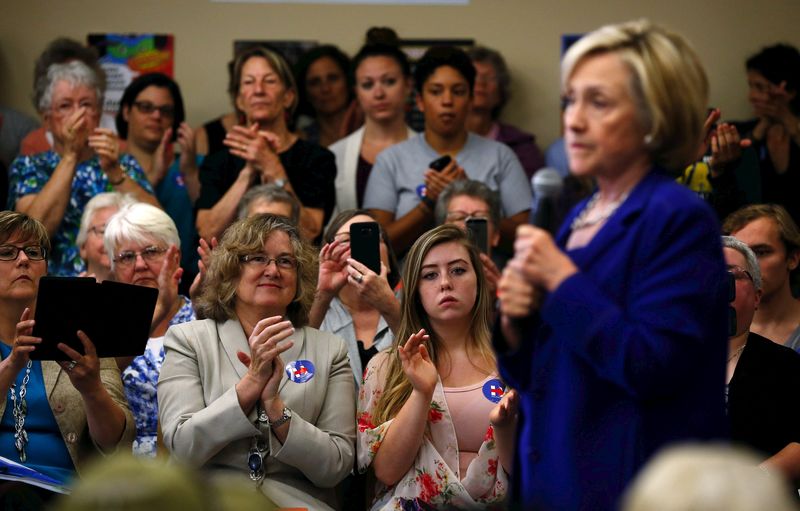By Luciana Lopez
NEW YORK (Reuters) - Presidential contender Hillary Clinton will pledge to "reform" capital gains taxation in coming weeks as part of her plan to fight an excessive focus on quick profits in capital markets, according to a campaign talking points document seen by Reuters.
Clinton, the favorite to win the Democratic Party's nomination for the November 2016 election, will speak on Monday about her plan for the U.S. economy, which includes addressing income inequality and encouraging longer-term investment.
The campaign memo, intended to help supporters discuss her ideas with the media and would-be donors, was sent out in advance of that speech.
"In the coming weeks, she will outline specific policies—for example, by reforming capital gains taxation—that will seek to counter the effect of this short-term focus," the memo, a copy of which was shared by a recipient with Reuters, said.
Such a pledge would appear to be a shift from her position when she last campaigned for the party's nomination in 2008.
In a primary debate that year, she stood by legislation signed by her husband, Bill Clinton, in 1997 when he was president.
That law lowered the maximum taxation rate on capital gains, which are the profits made on selling capital assets such as shares or real estate, from 28 percent to 20 percent. In 2003, the maximum rate was lowered further still to 15 percent under President Geoorge W. Bush.
"I wouldn't raise it above the 20 percent if I raised it at all," she said in the 2008 debate. "I would not raise it above what it was during the Clinton administration."
In 2012, the top capital gains taxation rate was raised back up to 20 percent for the wealthiest earners. For a period in the 1970s, the maximum taxation rate for long-term capital gains was almost 40 percent.
Clinton, who will say on Monday that the best way to increase the size of the U.S. economy is to increase middle-class people's incomes according to her campaign, hinted at her change of heart on capital gains at a campaign event in April.

Capital gains were intended to be "a way to reward people who made risky investments," she said at an event with voters in New Hampshire, "and now it is just being churned."